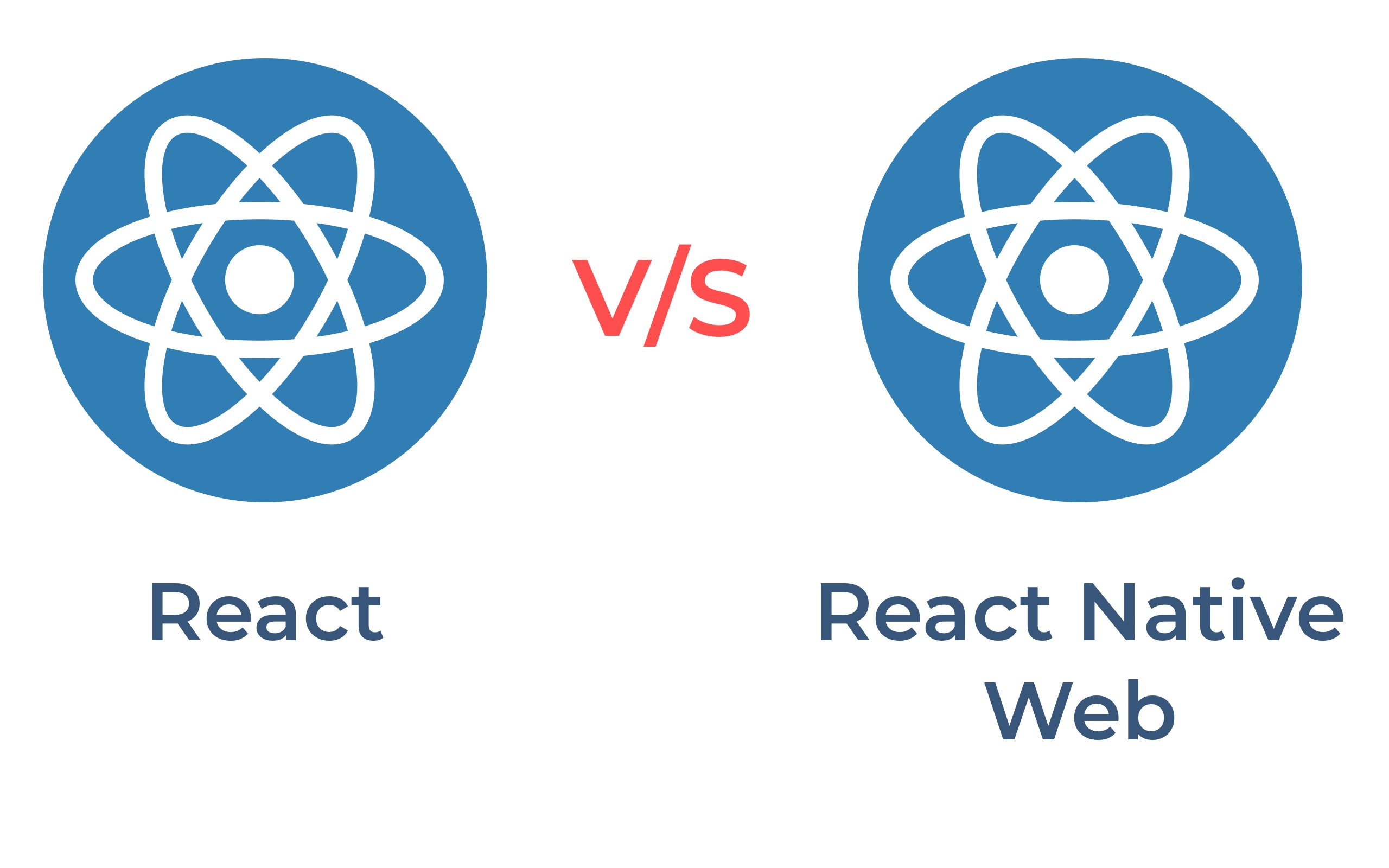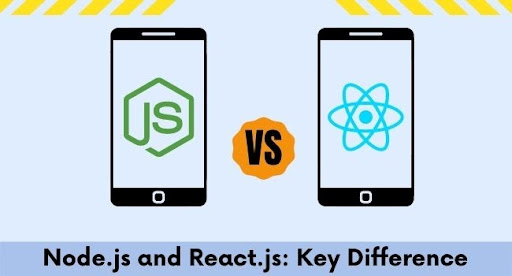One of the most common misconceptions of the tech industry is that people are unable to bifurcate between Reactjs and React Native. Well, to be precise both the terms might seem like homonyms but are way different when it comes to the core. Now I recently happened to stumble upon an interesting post which stated that Reactjs and React Native are some of the most intimidating and extraordinary technologies preferred across the globe for creating modern and scalable mobile apps and web apps. Now did you know that both of these Javascript frameworks consist of certain distinctions which one must be aware of before embarking on your first application development process?
Getting to Know our Contenders – Reactjs and React Native
Now before you take any important decision it’s important to know every possible opportunity around. After all, once you get to know your best options, you can definitely move further. And to survive in the digital realm, Reactjs and React Native turn out to be our best bets. Now let us try getting to know the two contenders better.
What is React Js?
Over time, it has been observed that front-end frameworks and libraries are becoming an essential part of the modern web development stack. Reactjs is more like a frontend library that has gained lots and lots of attention among the Javascript community. The open source Javascript framework and library were developed by Facebook with the objective to develop interactive user interfaces and dynamic types of web applications quickly and efficiently.
Now you might know that Facebook had a massive user base but what you might not have known is that offering a rich user interface to such a massive base could be quite challenging. Basically, you need something that is fast and highly performant.
After a while, a guy named Jordan Walke came up with the idea of creating an open-source Javascript library that assists developers by offering a more simplified, organized and well-structured manner of creating dynamic and interactive user interfaces. And you know what’s the best part here? All this is possible using reusable components.
Also, the revolutionary approach to DOM manipulation and user interfaces ensured that things became better. And that’s how Reactjs gained popularity. So why consider React?
- Easy creation of dynamic applications – One of the obvious benefits of considering React JS is that it is possible to create dynamic web apps. Since it doesn’t require much coding at the same time you get more and more functionality. Also, you should know that Javascript is one such tech stack where coding can get pretty complex.
- Another crucial aspect is that React ensures great performance. Here virtual DOM is preferred and that’s the reason why web applications can be developed at a fanatic pace. What happens here is that virtual DOM compares the earlier stage and updates with the real DOM.
- The next benefit is reusable components. Basically, components are more like building blocks. And even if you are using a single app, you should know that it comprises multiple components. These components can be easily reused throughout the application and the app can be developed within a very short span of time.
- Reactjs is pretty easy to learn in comparison to other tech stacks. Also, there are a wide range of React js tools, technologies and frameworks available around.
- Lastly, Facebook has released a chrome extension which can be used to debug React applications. And due to this, the debugging process becomes pretty faster and easier.
Several companies using Reactjs include Dropbox, Instagram, Airbnb, Walmart, Wix, Skype, Pinterest, Wix, Myntra and the list goes on! Now enough said about Reactjs, it’s time to shift the focus to our next contender; React Native.
What is React Native?
React Native was also created by Facebook and now seems to have been adopted by hundreds of businesses including Uber, Microsoft and Facebook. React Native is an open-source Javascript framework designed for developing apps based on a wide range of platforms such as Android, iOS and so more. It may quite interest you to know that React Native is a Hackathon project to solve companies’ biggest issues.
You see most of the React Native applications are written using Javascript and JSX(HTML/XML-like structures) but it invokes the native rendering APIs in Objective-C or Java. You see in the end, the app will give a perfect look and feel like any other native mobile application.
React Native offers easy access to a wide range of features such as phone camera, and user’s location and what’s more, the tech turns out to be the rising future of hybrid app development. As soon as Facebook decided to make its service available on mobile devices. There was a time when building native apps was pretty crucial. However, the solution didn’t work out. After a while, Jordan Walke came up with an amazing solution. And that was none other than React Native. And after a span of three years, React Native was the second biggest project on GitHub. Wondering why?
Here I would like to shed some light on some of the core benefits offered by React Native.
- Code Reusability – One of the biggest advantages of using React Native is that it offers the option of reusing the same code again and again. By doing so, the overall procedure of development becomes faster, easy and more efficient. In addition, React Native enables developers to see relevant changes in the code and that too live. Yes, even here developers are no longer required to refresh the page again and again. In addition, receiving real-time feedback is quite possible!
- Great performance – Another crucial benefit offered by React Native is that any mobile application created turns out to be pretty great especially when it comes to performance. React Native can be highly considered as revolutionary since it allows developers to use code which is written natively. Infact, Javascript officially claims that here you are bound to receive native-like performance. However, I will try to be more honest, here you are bound to receive near-native experience.
- Cost-effective – Another benefit of considering React Native is that here you can find relevant and reliable solutions in a pretty cost-effective manner. On and all, developing cross-platform applications can be way more, i.e 30 – 40% cheaper instead of building native apps right from the scratch.
Some of the best examples of React Native include Facebook, Skype, Instagram, Walmart, SoundCloud, Shine, UberEats and whatnot!
Reactjs vs React Native – The Detailed Comparison
| Factors | React js | React Native |
| Define | It is a Javascript Library used to create amazing user interface | It is a whole new Javascript framework used to conduct seamless mobile development projects |
| Focus Area | Web Development | Mobile App Development |
| Tags used | Uses HTML tags | Uses Built-in Tags |
| DOM | Uses DOM | DOM is not present here |
| Cost | Cost-effective | Might be a bit costly when developing simple apps. |
#1 Efficiency
Well if you are planning to develop something using Reactjs, then be assured that you will receive an amazing user interface and that too in quite an efficient manner. Also, React is one such library which can assist developers in executing on the client side even when it’s rendered on the server side. Apart from increasing the overall efficiency of the developer, React js offers more and more options when developing fundamental abstractions.
Whereas React Native on the other hand takes a different approach. You see the components used in both Android and iOS might have some counterparts for similar approaches and feel. And you know that these components are compiled directly into native code.
#2 SEO-friendly
Another interesting aspect to take into consideration is that in any application you try to develop whether it’s for the web or mobile, SEO-factor is something that must be taken into account. However, the ultimate objective of React is to offer an intuitive user interface since the Google bot is not human. You might have to seek the assistance of different tools and libraries to optimize the end result. Whereas React Native on the other hand hasn’t much to do with SEO. Here you must have a word with your developer prior if you want an SEO-friendly application.
#3 Learning Curve
Another crucial aspect to take into account is the learning curve. Well, Reactjs might take a long time to get acquainted with. So in other words, the learning curve of Reactjs is trickier than React Native. But in the end, it’s a doable job. You see that both technologies are backed by Tech-giant Facebook. So there is always a large community for help. In case, if the developer gets stuck or doesn’t find a reasonable solution then the community is right here for help.
In addition, Reactjs supports lots and lots of external, third-party libraries. And if you strive deep, you may find more and more native libraries for React. Now when you use external library support, developers can use both HTML and CSS functionalities without going through any kind of steep learning curve or complexities.
Final Thoughts
So I am sure that by now you have gotten a clear idea about these siblings. No matter how much differences Reactjs and React Native carry between them, both of them tend to follow the same kind of principles, and methodologies for conducting development projects. Yes, you read it right, both of them are important aspects of the web development realm. And there is no denying the fact that they are gaining momentum day in and day out.
Which option to choose? The answer is it depends on your needs, requirements and priorities. What exactly are you planning to develop? Is it a web or mobile application, what else are your requirements? Talk to a reliable web development company and I assure you that in this case, it will be a cakewalk. I hope you did like reading the post. If so, feel free to share among your peers and in case, if you have any doubts or issues, feel free to mention them in the comment section below. We will get back to you as soon as we can.





